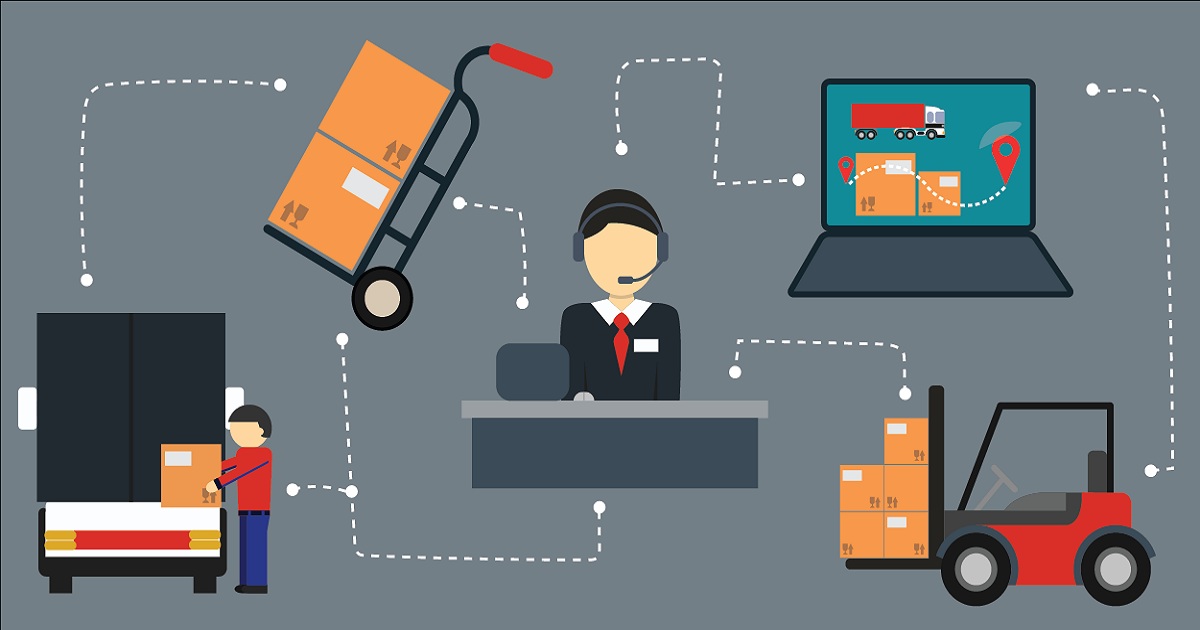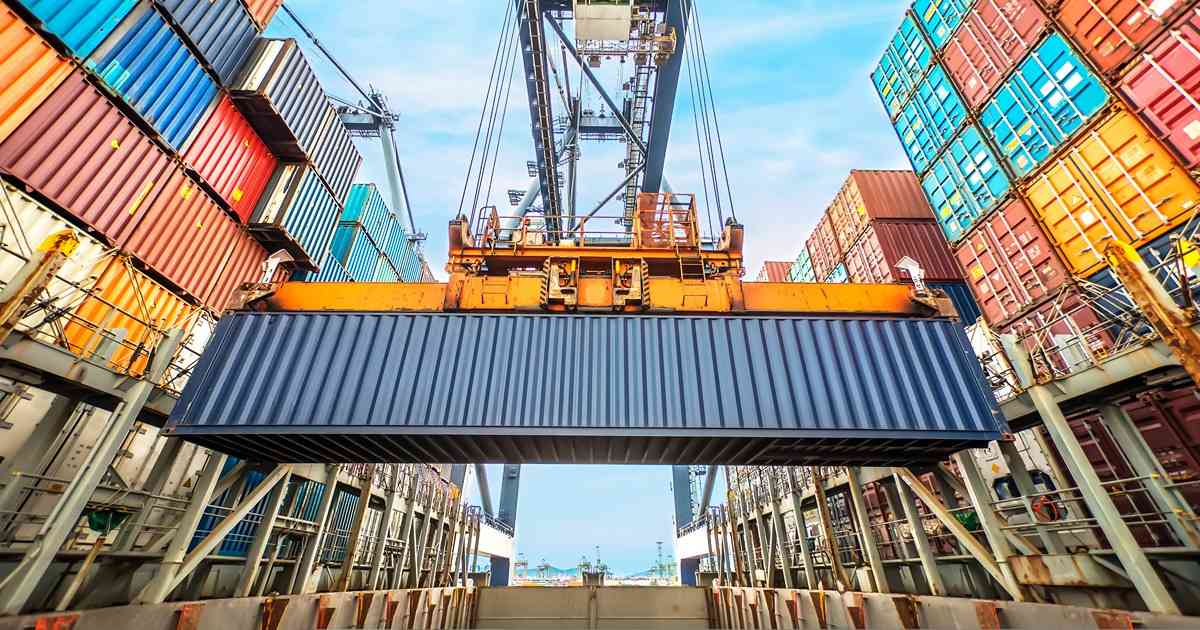
Supply Chain
Article | May 22, 2023
Transportation has always been the cornerstone of the supply chain and arguably its most targeted area when something goes wrong with a shipment. Why is my package late? What is my load’s current location? What is the ETA for my order? These are the daily questions that come from warehouses, distribution centers, and their end consumers – and they’re being asked now more than ever. Answering these questions requires holistic visibility into your supply chain that can only be achieved with the right mix of transportation technology and data management.
Read More

Supply Chain
Article | May 26, 2023
Leveraging technology and resources within a network is key to supply chain optimization. While supply chains are inherently complex, this complexity can lead to significant technological benefits.
Contents
1 Overview and Importance of Emerging Technologies in Optimizing Supply Chain
2 Advantages of Incorporating Emerging Technologies in Enhancing Optimization
2.1 Autonomous Delivery
2.2 Cognitive Automation
2.3 Blockchain-enabled Traceability
2.4 Predictive Maintenance
3 Key Challenges in Adopting Emerging Technologies
3.1 Cost and Budget Constraints
3.2 Skills Gap in Talent
3.3 Privacy and Data Security Concerns
4 Overcoming Challenges
4.1 Adopting Technologies for Managing Budget and Cost
4.2 Developing Talent Pipeline
4.3 Implementing a Zero Trust Security Model
5 Future Outlook
Supply chain optimization involves maximizing the utilization of technology and resources within a supply network. Although supply chains are inherently complex, this complexity can yield significant technological advantages, particularly when leveraging the combination of blockchain, artificial intelligence (AI), and Internet of Things (IoT) technologies.
1 Overview and Importance of Emerging Technologies in Optimizing Supply Chain
Emerging technologies have transformed the supply chain industry and revolutionized business operations. AI, IoT, blockchain, and robotics are getting prominence with the ability to streamline supply chain processes, reduce costs, increase efficiency, and ultimately boost customer satisfaction. Implementing these technologies can give businesses real-time supply chain visibility, reducing waste and enhancing inventory management. Understanding the potential benefits of these emerging digital supply chain technologies and how they can be implemented within the supply chain is essential for any business that intends to stay in a competitive and rapidly evolving market.
2 Advantages of Incorporating Emerging Technologies in Enhancing Optimization
Blending operations with emerging supply chain technologies can significantly improve the speed and accuracy of information flow, minimize manual intervention, and reduce lead times. Additionally, these technologies can provide enhanced visibility into supply chain operations, enable effective risk management, and facilitate proactive decision-making.
2.1 Autonomous Delivery
Incorporating autonomous delivery that comes with self-driving vehicles benefits businesses beyond faster delivery times, lowers costs and reduces human error. It offers increased safety, greater flexibility, and improved resource management. It benefits industries like e-commerce and logistics, where quick and efficient delivery is crucial.
2.2 Cognitive Automation
Businesses face significant challenges due to unpredictable fluctuations in supply and demand, which can strain their existing technology. To mitigate these risks, executives have increased their investments in risk management. Cognitive automation offers three key benefits in supply chain management: identifying challenges and opportunities, gathering demand signals, and utilizing data for decision-making. Cognitive automation makes balancing supply and demands more efficient and effective, allowing businesses to act faster.
2.3 Blockchain-enabled Traceability
Blockchain technology, a distributed ledger system, enables secure, transparent, and traceable record-keeping across a supply chain network. By providing a tamper-proof record of product movement and quality, blockchain technology can enable businesses to verify the authenticity and integrity of their products at each stage of the supply chain. In addition, blockchain technology allows businesses to quickly trace product origins and identify affected batches during recalls.
2.4 Predictive Maintenance
Predictive maintenance is a technology that uses machine learning algorithms and Internet of Things sensors to predict impending equipment failures. By analyzing equipment performance data, predictive analytics enables businesses to reduce equipment downtime, lower maintenance costs, and increase reliability. With predictive maintenance, businesses can transition from reactive to proactive maintenance, preventing equipment failures and extending equipment lifecycles.
3 3 Key Challenges in Adopting Emerging Technologies
3.1 Cost and Budget Constraints
The executives in the supply chain industry face a significant challenge when adopting emerging supply chain technologies due to the associated costs and budget constraints. While these smart supply chain technologies offer long-term benefits, the upfront investment can deter businesses. Businesses need to consider the total cost of ownership, including implementation, training, ongoing maintenance costs, and the potential return on investment.
3.2 Skills Gap in Talent
Incorporating emerging technologies and trends in supply chain operations management is a complex and costly investment that demands a highly skilled workforce to implement and operate such supply chain technologies successfully. A significant skills gap while adopting technology in the supply chain industry poses a challenge for businesses in finding and training competent personnel with technical, analytical, and business skills required to handle emerging technologies.
3.3 Privacy and Data Security Concerns
As supply chain operations adopt cutting-edge technologies, companies must address privacy and data security issues. The use of technology requires the collection and dissemination of sensitive data across multiple parties, which raises security and privacy concerns that can be exploited by cybercriminals or unauthorized personnel. Failure to adequately address these issues may result in reputational harm, legal and financial penalties, and a loss of customer confidence.
4 Overcoming the Challenges
4.1 Adopting Technologies for Managing Budget and Cost
To overcome the challenge of budget and cost constraints in adopting technology in the supply chain, businesses can leverage innovative tools, such as cost management software and advanced analytics tools, which can provide real-time visibility into cost drivers and enable better decision-making to optimize resource utilization. With the top three technologies in supply chain such as AI, IoT and blockchain, businesses can reduce costs, boost supply chain performance, and maintain market competitiveness. AI predicts demand, maximizes inventory and improves transportation; RPA automates manual tasks, reduces labor costs, and cloud computing provides a flexible and scalable IT infrastructure with reduced upfront investments.
4.2 Developing Talent Pipeline
Businesses must invest in building a talent pipeline to ensure a steady supply of skilled employees to narrow the skills gap in the supply chain industry. Collaboration with educational institutions, in-house training programs, and managed service providers from the technology industry can all be part of the answer. The organization's competitiveness and success can be increased by creating a talent pipeline to fill the skills gap between the current workforce and the needs of emerging technologies. Businesses can keep their workforce current and ready to adopt new technologies in supply chain by investing in a talent pipeline.
4.3 Implementing a Zero Trust Security Model
As businesses adopt emerging technologies for supply chain operations, privacy, and data security, concerns have become a formidable obstacle. The implementation of a zero-trust security model can aid in addressing this difficulty. Before gaining access to any data or system, all users and devices in this model must be authenticated as potential threats, per this model. This strategy protects data and systems from unauthorized access and enables businesses to comply with regulations such as the GDPR and CCPA. In addition, it can provide supply chain visibility and control over data access in real-time, making it more effortless to detect and respond to security threats.
5 Future Outlook
Supply chain leaders view emerging supply chain technology as a competitive advantage and as a means to address digital transformation. In addition, there is a focus on supply chain technologies that improve human decision-making and manage assets at the edge. Organizations should unify their technology portfolio and update legacy systems for greater efficiency. As supply chain complexity increases, we can expect even more advanced technology solutions leveraging big data, machine learning, and robotics to create agile, flexible, and sustainable supply chains.
Read More

Warehousing and Distribution
Article | July 11, 2023
Over the past decade, transportation and logistics have witnessed an immense transformation, from using automotive vehicles to drones and paper tags to advanced geotags. Also, the introduction of novel technologies and incorporation of innovative solutions such as artificial intelligence and blockchain has further reshaped the sector.
How is Rising Complexity Triggering the Adoption of Novel Technologies?
Today's supply chain is, in a word, complex. It has so many complexities, from ever-rising consumer expectations and disruptive events to globalized sourcing and omnichannel demand, that it is now being compared to a modern-day Gordian knot. With complexity comes ambiguity, particularly in the transportation and logistics industry.
For instance, importers are expected to find cost-effective and efficient ways to transport goods from manufacturing facilities, which are frequently located halfway around the world, to distribution centers and then, ultimately, into the hands of consumers. In addition, e-commerce has further added to the complexity by introducing new channels into the jumble along with the introduction of same-day or next-day delivery standards with higher transparency and tracking features by leading players such as eBay, Walmart, and Amazon Here are a few prominent technologies assisting logistics companies to counter these complexities.
Data Analytics
Big data analytics aids in the more accurate and efficient planning of operational processes, services, and strategies, allowing businesses to align with emerging consumer needs.
Artificial Intelligence (AI) and Machine Learning
AI and Machine Learning have become the most sought-after tech in the transportation food chain. It assists businesses in enhancing operational functionality, boosting productivity and speed, designing optimal transit networks and routes, and improving safety through predictive risk calculation and elimination.
The Internet of Things (IoT)
With the rising need for transparency and tracking of shipped goods, IoT is garnering immense popularity across the transportation and logistics sector. It enables businesses to monitor and track their goods in real-time with the help of geo-tagging, RFID tags, and GPS, resulting in fewer delays in deliveries.
Read More

Article | July 29, 2021
Risk management has been a problem for as long as supply chains have existed. Because of the interdependence of all its connections, even a minor issue in one isolated region has the potential to jeopardize a whole global supply chain. As a result, when major global trends and events occur, the potential for widespread supply chain disruption is enormous.
Global supply chain risks and market disruptions have reached an all-time high. The most notable of them is the COVID-19 pandemic. In a 2020 survey, the Institute for Supply Management discovered that 95% of companies faced operational issues due to the pandemic. As a result, business executives all around the globe believe that if they want to be more resilient and competitive in the present market, they need to modernize and make significant changes to their supply chain strategy.
Other recent factors that have had a significant impact on traditional supply chain practices include the fast pace of change in consumer behaviors and a pretty unstable trade and political environment.
In the last ten years, e-commerce spending has tripled, and internet shopping had increased by 149% in 2020 compared to the previous year. With the growth of e-commerce, there has been a rise in customer demand for faster delivery and more personalized shopping experiences. The Amazon Effect refers to the growing expectation for same-day delivery and its effect on businesses and logistical networks. To be resilient enough to react to these rising demands, supply chain managers have had to make fast and significant modifications to their logistics and warehousing networks, as well as discover new ways to collaborate with third-party fulfillment partners.
Even before the impact of COVID-19, American businesses were attempting to reduce their dependence on foreign manufacturers and suppliers. Foreign tariffs and trade policies had become more unpredictable by 2019, and businesses were seeking technological solutions to make the supply chains more self-sufficient and resilient. As a result, integrating digital transformation and Industry 4.0 technology into supply chain operations is quickly becoming a top concern for global business leaders.
How does Supply Chain Resilience Work?
A flexible contingency plan and the ability to react swiftly to operational disruptions are important characteristics of effective supply chain management. However, to be truly resilient, a supply chain must be able to predict and anticipate disruptions and, in many cases, avoid them entirely.
Strategic supply chain planning is an important step in achieving resilience because it synchronizes all supply chain components and increases visibility and agility. Supply and demand needs are better understood, and production is synchronized due to supply chain planning. This integrated, forward-thinking approach assists businesses in better anticipating problems, reducing the impact of supply chain disruptions, and improving overall operations.
When a business has the digital systems to analyze and make sense of Big Data, it significantly improves supply chain resilience. Artificial intelligence-enabled systems can curate disparate data sets from across the business and the globe. To discover trends and opportunities, news, competitor activity, sales reports, and even customer feedback can be examined together. The system's connected devices are constantly monitored, providing real-time insights about where and how processes can be automated and improved. For instance, AI, machine learning, and modern databases acquire and handle Big Data and analyze and learn from it in an almost infinite number of ways. This enables intelligent automation across the network and provides supply chain managers with the real-time insights they require to respond quickly to disruption and unexpected events.
Supply chain managers have traditionally sought to limit the number of partners and suppliers in their network to minimize operational and logistical complexity. This approach is based on the stability of the social, environmental, and political systems. Unexpected disruptions in one region can slow or even stop network operations across the board. Supply chain resilience technologies, such as blockchain, sensors, and advanced analytics, enable supply chain managers to monitor complex partnerships and supplier contracts even in the most remote parts of their network.
Profitability in the supply chain has always been dependent on minimizing excess and keeping inventories as lean as possible. Capacity and inventory buffers are expensive, and supply chain managers have often bet against disruptions to keep prices low. When the pandemic struck, many businesses discovered the real cost of the gamble. Supply chain operations can involve on-demand manufacturing, virtual inventories, and predictive demand forecasting using digital supply chain technologies to remain resilient, even in times of unexpected disruption.
Benefits of a Resilient Supply Chain
Finding a successful balance between supply and demand is a significant issue for any supply chain manager in an increasingly competitive market. Many businesses that have cut costs on diversification, supply chain technology, and other resilience measures have lately discovered the true cost of those choices. However, when businesses engage in diversification, supply chain technologies, and other resilience measures, they can achieve a variety of business benefits, including:
More efficient operations: Better resilience often results in less risk and a greater capacity to invest in innovation and growth. For example, according to a 2020 global business analysis conducted by Bain and Company, businesses that prioritized their investment in supply chain resilience had up to 60% quicker product development cycles and were able to increase production capacity by up to 25%.
Enhanced productivity: Resilient supply chain solutions lead to the overall system increased productivity. According to a McKinsey 2020 survey, supply chain leaders from across the world report increased productivity due to resilient supply chain systems, and 93% of those surveyed plan to prioritize resilient supply chain strategies for investment in the next year.
Risk reduction: Supply chain activities are often the most vulnerable to risk and loss in many businesses. Supply chains, by nature, are geographically distributed and functionally complex. As a result, supply chains are particularly vulnerable to risk. Resilient supply chain technologies minimize risk by providing insight into all network operations and enabling companies to improve and adjust their processes and logistics in real-time.
Technologies for an Agile Supply Chain
Digital transformation and modern supply chain technology provide businesses with the resilience and competitive advantage they need to react swiftly to disruptions and opportunities.
Artificial intelligence (AI): AI-powered supply chain systems can offer deep procedural and operational insights by gathering and analyzing data from many sources. Predictive analytics and Big Data analysis can assist in predicting risk and demand and recommending measures and reactions in the company.
Machine learning: Machine learning enables the discovery of patterns in supply chain data and the identification of these influential factors - all while constantly learning. This enables supply chain managers to react fast with the finest workflows and operational strategies available.
Industrial Internet of Things (IIoT): The IIoT network in a supply chain comprises connected devices and objects with sensors and unique IDs that allow them to transmit and receive digital data. They collect information and communicate with the central system. AI can analyze and understand this data to enable quick decisions and intelligent automation of supply chain operations and procedures.
Additive (3D) printing: Smart factories can quickly reprogram 3D printers to produce specific products on-demand without disrupting regular business operations in the long run. The accessibility of potential virtual inventories enables supply chains to defend themselves against disruption.
Robots and autonomous things: Robots and drones, which are intelligently automated for speed, efficiency, and accuracy, can adapt their operations on the go to meet quickly changing requirements. They also reduce the risk of harm by eliminating overly repetitive or dangerous tasks from human workers.
Modern databases: The resilient supply chain solutions rely on Big Data, advanced analytics, and real-time insights from modern databases. Supply chain technology can be improved to operate faster and most resilient when equipped with a modern ERP system and an in-memory database.
Resilience means more than just surviving a disruption in operations. A fully resilient supply chain and businesses survive hardship and use it to innovate and improve their business. Building a resilient supply chain is very important in this modern era because disruptions like a pandemic, wars, climate change, etc., are occurring a lot these days. A resilient supply chain helps businesses to survive and thrive even during tough times. To read more about ways to boost supply chain performance, click here.
FAQ
What is supply chain resilience?
Supply chain resilience refers to the supply chain's capacity to be prepared for unexpected risk events, react and recover swiftly to potential disruptions, and grow by shifting to a new, more desirable state in order to improve customer service, market share, and financial performance.
How is supply chain resilience measured?
A supply chain's resilience index is calculated by aggregating its company's resilience index. Given that supply chain company's performance influences overall supply chain performance, supply chain resilience should be measured using the companies' resilience index.
{
"@context": "https://schema.org",
"@type": "FAQPage",
"mainEntity": [{
"@type": "Question",
"name": "What is supply chain resilience?",
"acceptedAnswer": {
"@type": "Answer",
"text": "Supply chain resilience refers to the supply chain's capacity to be prepared for unexpected risk events, react and recover swiftly to potential disruptions, and grow by shifting to a new, more desirable state in order to improve customer service, market share, and financial performance."
}
},{
"@type": "Question",
"name": "How is supply chain resilience measured?",
"acceptedAnswer": {
"@type": "Answer",
"text": "A supply chain's resilience index is calculated by aggregating its company's resilience index. Given that supply chain company's performance influences overall supply chain performance, supply chain resilience should be measured using the companies' resilience index."
}
}]
}
Read More